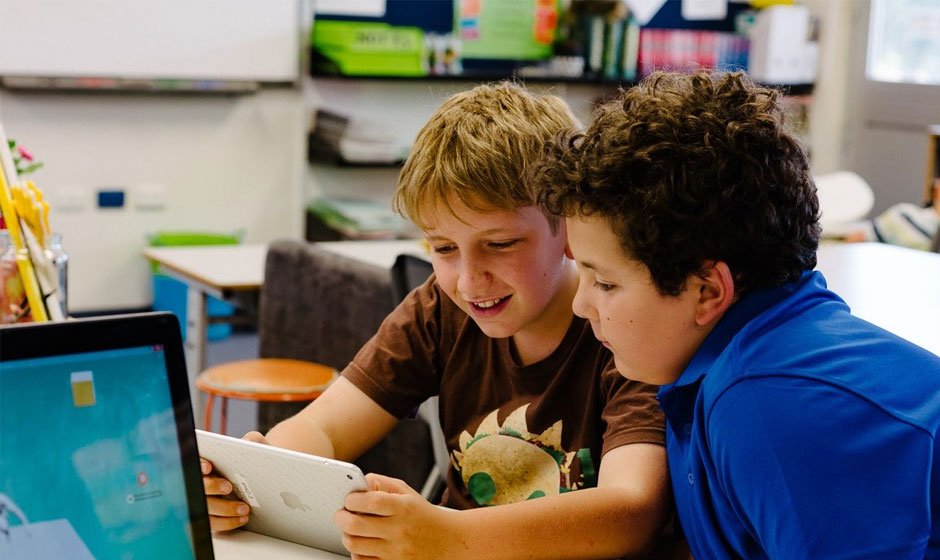How to Help Your Child Develop Social Skills In School

Developing social skills in young children is very important for their growth and future achievements. These skills help them talk nicely with others, make friends, and handle different social moments well. Being a parent, you are crucial in helping your child grow these skills. Here are some useful ideas for aiding your child’s social abilities: try role-playing different social situations, support arranging playdates with other kids, and teach about understanding others’ feelings and working together.
Role-Playing Social Scenarios
Role-playing is a good method to teach young kids social skills. When children act out different social situations, they can learn how to respond and behave correctly in a place that is safe and controlled. Start by recognizing everyday social situations your child might meet, like saying hello to a new person, sharing toys during playtime, or handling arguments with friends.
For example, you can pretend a situation where your child is meeting a new friend at the playground. One by one, be the new friend and then switch to being your child, practicing how they say hello and ask if they can play together. Encourage your child to use respectful words and look people in the eyes. When they do this many times, your child will start feeling more sure of themselves and at ease when talking to others for real.
Encouraging Playdates
Another useful way to help your child improve social skills is planning playdates. By organizing playdates, you create opportunities for kids to interact with other children, share things and learn about teamwork. For this, first invite one or two kids to come over for a playdate. Keep the group small so your child does not feel too overwhelmed.
During playdates, observe your child’s behavior while playing with others and offer subtle assistance. Urge them to alternate, divide their toys and engage in cooperative play. If your child is playing with blocks, you could propose constructing a tall structure with their friend. This way they learn teamwork and understand why working with others is important.
Change the places where your child has playdates. This helps them grow comfortable in diverse environments and lets them play with a range of toys. Shifting locations assists kids in understanding how to conduct themselves according to various social settings and meeting unique anticipations.
Teaching Empathy and Cooperation
Empathy and cooperation are important social ..skills that children must learn to build strong relationships. Teaching empathy means guiding your child to recognize and feel what others experience. You can foster empathy by modeling empathetic behavior yourself and discussing emotions openly.
When reading stories or watching movies, you can discuss the characters’ feelings and why they might feel like that. Ask your child how they would feel in a similar situation and what actions could they take to help. For example, if a character feels sad because of a lost toy, you can talk to your child about how they might offer comfort or help find it. Maybe say something like this: “If someone is feeling down because they can’t find their favorite toy, we could give them a hug and tell them everything will be okay. Also, we could ask where we last played with the toy and look together in those places.” This way teaches children kindness and problem-solving at same time!
Encouraging working together means you teach your child to join others in reaching the same aim. You can help develop cooperative behavior by doing group activities and playing games where teamwork is needed. Simple things like finishing a puzzle together or playing catch can help learn important lessons about working with others. Give praise to your child when they show good teamwork, which helps them understand that cooperating brings rewards. Use good words to show you noticed specific actions, like when your child shares a toy or helps a friend. Saying nice things about these actions makes your child see how working together is good and gives them reasons to keep doing such behaviors.
Building a Positive Social Environment
Making a good social atmosphere in the home is very important for learning social skills. Show positive behavior by being respectful and kind when talking to others. Teach your child how to deal with conflicts in a calm and respectful way, also explain why it is important to hear what others have to say.
Creating family routines that involve social activities can also help strengthen social skills. Family game nights, eating together, and going out give children chances to practice talking with others, sharing things, and working together in a safe place they know well. Let your child talk openly by allowing them to share their thoughts and feelings without judgment. When you listen carefully and show that their emotions matter, they feel understood and important. This helps them build a sense of safety and confidence in dealing with others socially.
Dealing with Social Challenges
It is important to understand that learning social skills can be hard for some kids. Be patient and give regular help and encouragement. If your child has difficulty with some parts of social interaction, like making friends or handling arguments, think about getting help from a child psychologist or counselor who focuses on social growth.
Help your child by giving chances to practice and get better at social skills. Motivate them to join group activities like sports teams, clubs, or community events where they can meet friends and grow more confident in social situations. Putting names on personal things using name labels can also help people talk to each other. For instance, when kids see labels with names, it helps them know and remember the names of their friends more easily. This makes it easier for kids to connect and form friendships.
Conclusion
Helping your child to develop social skills is important for their growth and happiness. By doing role-playing, setting up playdates, and teaching them about empathy and working together, you can give your child the tools they need to handle social situations well. By making a good social setting and handling problems with calmness and help, you can improve your child’s growth in social skills. This helps build the base for strong relationships and positive interactions all through their life.



